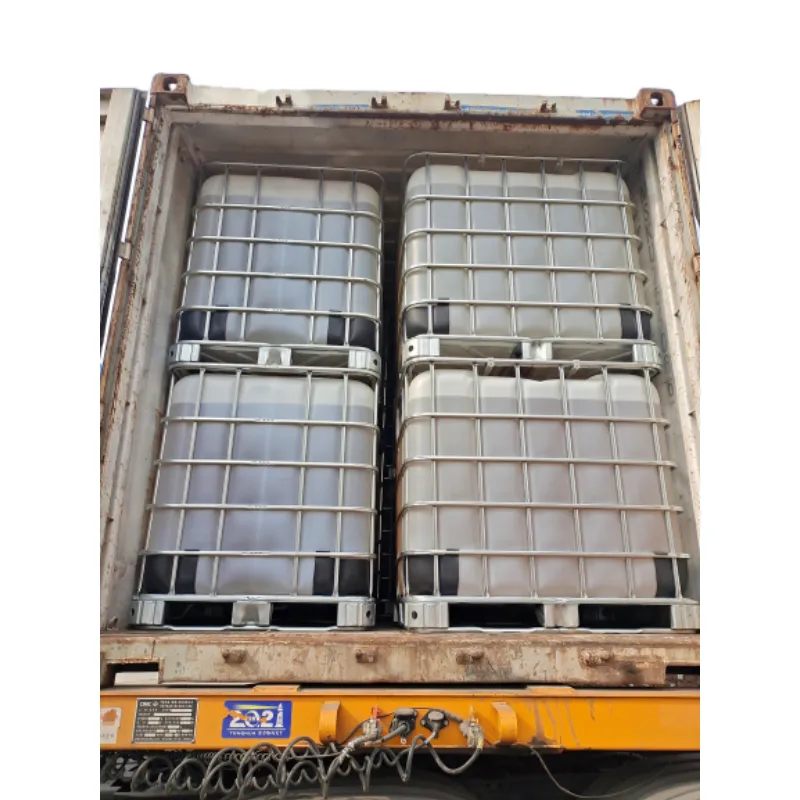
thickeners 407
Understanding Thickeners Focus on E407
Thickeners play an essential role in the food industry, enhancing texture, viscosity, and stability of various products. One such thickener that has gained prominence is E407, commonly referred to as carrageenan. Derived from red seaweed, E407 is widely utilized across several applications due to its unique properties. This article explores the characteristics, uses, and implications of E407 in the food sector and beyond.
What is E407?
E407 denotes a group of linear sulfated polysaccharides, which include different forms of carrageenan such as kappa, iota, and lambda. These polysaccharides have varying thickening and gelling capabilities, making them versatile for numerous food products. The extraction process involves boiling the seaweed in water, which releases the carrageenan. After filtering and drying, the result is a powdered substance that acts as a thickener, stabilizer, and emulsifier.
Key Characteristics
E407 stands out due to its ability to form gels in the presence of certain ions, particularly potassium. Kappa carrageenan, for example, forms strong gels at low concentrations when combined with potassium ions, making it ideal for products that require a firmer texture, such as dairy desserts and meat products. On the other hand, iota carrageenan forms softer gels that are more elastic, often utilized in puddings and sauces. Lambda carrageenan, which does not gel, is used primarily as a thickener and stabilizer in liquid applications.
Applications in Food Industry
The food industry has embraced E407 for its multifunctionality. It is commonly found in dairy products like ice cream, yogurt, and chocolate milk, where it helps improve smoothness and creaminess. Its ability to prevent syneresis (the separation of liquid from a gel) is crucial in maintaining product integrity over time.
thickeners 407

Carrageenan is also employed in meat products, providing moisture retention and improving texture, which enhances the overall eating experience. Furthermore, E407 finds its way into various sauces, dressings, and even vegan alternatives, making it a staple in modern culinary applications.
Health Considerations
The use of E407 has sparked discussions regarding health implications. While carrageenan is generally recognized as safe (GRAS) by various food safety authorities, some studies have raised concerns about its potential effects on gastrointestinal health. Certain research suggests a possible link between excessive consumption of carrageenan and inflammation; however, conclusive evidence is still needed. Regulatory agencies, including the European Food Safety Authority (EFSA) and the U.S. Food and Drug Administration (FDA), continue to evaluate its safety, and consumer awareness remains essential in this regard.
Environmental Impact
The sourcing of E407 from red seaweed also raises environmental considerations. As demand for carrageenan rises, sustainable harvesting practices become imperative to ensure that marine ecosystems are not adversely affected. This highlights the importance of regulatory frameworks and responsible sourcing practices in maintaining ecological balance while meeting industry demands.
Conclusion
E407, as a natural thickener from seaweed, plays a vital role in the food industry, providing texture, stability, and versatility to a myriad of products. While its application continues to expand, it is crucial to remain vigilant regarding its consumption and environmental impacts. Understanding E407 not only enhances consumer knowledge, but it also encourages responsible production and consumption practices, ensuring that the benefits of this remarkable ingredient can be enjoyed sustainably for years to come.
-
The Safety Challenges of Ammonium Nitrate FertilizerNewsJun.26,2025
-
The Critical Role of Mining ChemicalsNewsJun.26,2025
-
Shelf Life of Glacial Acetic Acid Food GradeNewsJun.26,2025
-
Enhancing PVC Longevity with 1,2,3-Benzotriazole InnovationsNewsJun.26,2025
-
China’s Dominance in Food Additive ProductionNewsJun.26,2025
-
Can Aluminum Hydroxide Replace More Toxic Alternatives?NewsJun.26,2025
-
PE and PP Plastics with Benzotriazole AdditivesNewsJun.12,2025
Hebei Tenger Chemical Technology Co., Ltd. focuses on the chemical industry and is committed to the export service of chemical raw materials.
-

view more DiethanolisopropanolamineIn the ever-growing field of chemical solutions, diethanolisopropanolamine (DEIPA) stands out as a versatile and important compound. Due to its unique chemical structure and properties, DEIPA is of interest to various industries including construction, personal care, and agriculture. -

view more TriisopropanolamineTriisopropanolamine (TIPA) alkanol amine substance, is a kind of alcohol amine compound with amino and alcohol hydroxyl, and because of its molecules contains both amino and hydroxyl. -

view more Tetramethyl Thiuram DisulfideTetramethyl thiuram disulfide, also known as TMTD, is a white to light-yellow powder with a distinct sulfur-like odor. It is soluble in organic solvents such as benzene, acetone, and ethyl acetate, making it highly versatile for use in different formulations. TMTD is known for its excellent vulcanization acceleration properties, which makes it a key ingredient in the production of rubber products. Additionally, it acts as an effective fungicide and bactericide, making it valuable in agricultural applications. Its high purity and stability ensure consistent performance, making it a preferred choice for manufacturers across various industries.











